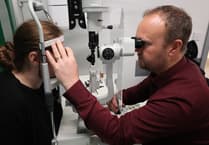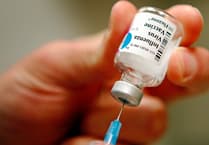Antibiotics prevent snails from forming new memories by disrupting their gut microbiome - the community of beneficial bacteria found in their guts.
The new research, led by the University of East Anglia (UEA) in collaboration with Aberystwyth University, highlights the damaging effects that pollution could be having on aquatic wildlife.
In the study, pond snails were given a favourite food – carrot juice – but had to quickly learn and remember that it was no longer safe to eat.
Snails in clean water did well, avoiding feeding on the carrot juice when it had been paired with a chemical they dislike.
However, snails that had been exposed to high concentrations of antibiotics in the water failed to learn and form memory and continued to show normal feeding behaviour even after training.
Co-author Dr Sarah Dalesman from Aberystwyth University’s Department of Life Sciences said: “Wastewater entering our streams and rivers contains a cocktail of chemicals used to treat humans and animals.
“However, we still don’t know how many of these chemicals are affecting the animals living in freshwater environments.
“Our research aimed to determine if the gut microbiome of aquatic animals can be altered by antibiotic pollution and if this could be detrimental to their survival”.





Comments
This article has no comments yet. Be the first to leave a comment.